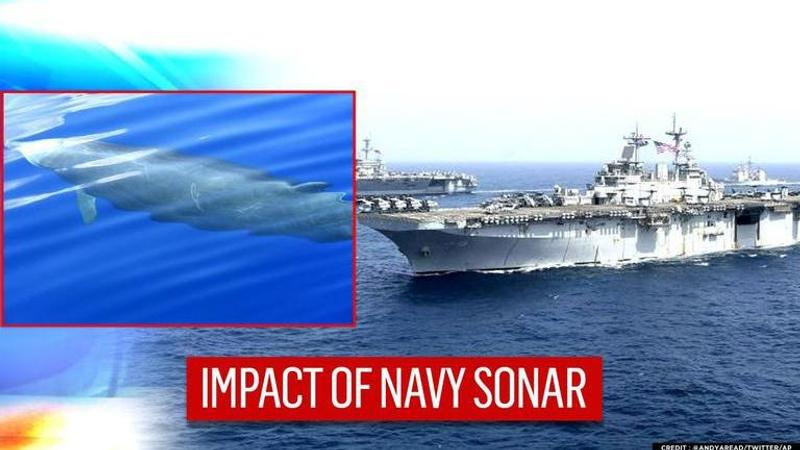Published 14:16 IST, January 16th 2021
US Navy Sonar could be behind increased whale beachings in Pacific: Study
A study by NOAA and Scripps Institution Oceanography hinted that US Navy’s Sonar use may be a factor behind increased beachings of whales in the Pacific.

A study by the National Oceanic and Atmospheric Administration (NOAA) and Scripps Institution Oceanography hinted that US Navy’s Sonar use may be a factor behind increased beachings of whales in the Pacific. The research published in The Royal Society examined how the navy’s use of mid-frequency active sonar may contribute to whale standings in the Marianas. The study reported that eight stranding events between 2006-2019 involved at least 10 whales, where fish came out of the water and stuck on beaches, losing lives in many instances.
The Mariana Islands are home and habitat to whales, dolphins and countless other mammals. The US territory of Guam and the Commonwealth of the Northern Mariana Islands (CNMI) are, however, surrounded by the US Military’s Mariana Islands Training and Testing (MITT) study area. The region, which is important for the Department of Defence, is a ground for new weapons systems and for live-fire training, but the military’s impact on the environment, especially because of the use of sonar for anti-submarine warfare training, are causing whales to beach themselves to die.
According to the research, the Cuvier’s beaked whales, known for deep dives documented last for hours, maybe acutely vulnerable to sonar. The researchers noted that the Cuvier’s beaked whales can feed beyond the reach of competitors and predators, but not out of range of navy sonar. They said that the timing of the standings and their proximity to sonar have are believed to be related.
The lead author, acoustic ecologist Dr Anne Simonis, said that the team has recorded in waters between 600 and 1000 meters off Saipan and Tinian islands at timed intervals for up to 12 months, analysing recordings of the whales’ distinctive echolocation clicks, which fall beyond the range of human hearing but are easily identified using a spectrogram to visually represent sounds. The researches detected three beaked whale species and examined eight Cuvier’s beaked whale standings, of which three were confirmed to have occurred within six days of sonar use in the area.
US Navy says there’s ‘insufficient evidence’
The hypothesis suggested that sonar may cause the whales to surface too quickly, forming bubbles in their blood or vital organs similar to decompression sickness, known as bends. Simonis said that the number of animals that actually show up dead on the beaches may only be a fraction that is dying at the sea. She added that “it does seem to be clear” that beaked whales are more sensitive to navy sonar than other species.
However, while speaking to The Guardian, the US Navy’s spokesperson Lieutenant James Adams said that the Whales strand for a wide variety of reasons, including natural causes. He added that there was “insufficient evidence” to suggest that navy’s use of the Sonar had caused more whale beachings. The US Navy follows strict guidelines, employing protective measures to avoid impacts from at-sea training and testing, he said.
Updated 14:13 IST, January 16th 2021




